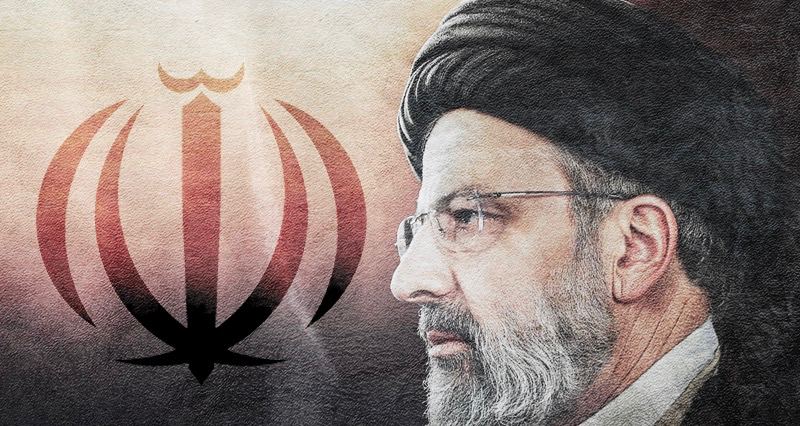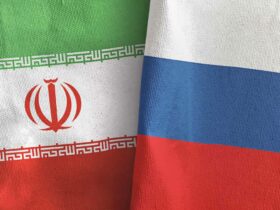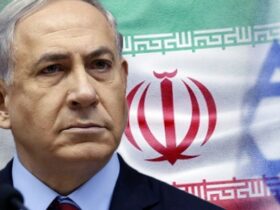Ebrahim Raisi, the president of the 13th government of the Islamic Republic of Iran, lost his life because of a helicopter crash incident. After Mohammad-Ali Rajai, who was assassinated on August 30, 1981, he became the second Iranian president after the revolution to die in office, leaving his mark on history.
Public questions about the crash and subsequent rescue efforts
Although various theories about the cause of his helicopter crash are still being debated, the technical report of the specialized commission of the General Staff of the Iranian Armed Forces will provide the definitive answer.
The crisis management of the situation following the announcement of the president’s helicopter crash, as well as the reasons for the 15-hour delay in locating the crash site and the bodies of the president and his companions, are among the issues being discussed and debated in Iranian public opinion. Some citizens, criticizing crisis management and media coverage of rescue operations, believe that officials did not perform in a significant and defensible manner. This is one of the topics that will be discussed and debated in public opinion and Iranian media for several months. The ambiguities surrounding the crisis management situation are more numerous than those surrounding the helicopter crash itself. It is also likely that public pressure will start to hold officials accountable for their subpar performance in the relief efforts once the late president and his companions have been laid to rest, and the country has returned to normal. Many people believe the crisis team should be held accountable as they could have shown better performance, even though they were unavoidably hindered by the extremely unfavorable weather and challenging location of the helicopter crash site.
Funeral procession and sociology of the Iranian people
The bodies of Ebrahim Raisi and the accompanying officials were first mourned in Tabriz, the capital of East Azerbaijan Province and the site of the helicopter crash. They were then mourned in Qom, Tehran, and the hometowns of each of the deceased. Crowds of hundreds of thousands gathered in Tehran and other cities to bid farewell to the president and his delegation, drawing the attention of observers worldwide. While none of Iran’s kings have died in this manner since the Persian Constitutional Revolution (e.g., Mohammad Ali Shah Qajar in Sanremo, Italy, Ahmad Shah Qajar in Neuilly-sur-Seine, France, Reza Shah Pahlavi in Johannesburg, South Africa, and Mohammad Reza Pahlavi in Cairo, Egypt), the largest funeral processions in Iran’s history have occurred since the 1979 Islamic Revolution. The funeral processions for Ayatollah Khomeini, the leader and founder of the Islamic Revolution, several religious scholars, and General Qassem Soleimani, who was assassinated in a terrorist attack by the US government on January 3, 2020, are among the largest in Iranian history. Now, with the million-strong funeral procession in Tehran and hundreds of thousands in other cities bidding farewell to Ebrahim Raisi, another significant chapter has been recorded in Iran’s history. Considering the level of public participation in government officials’ funeral processions, it would be reasonable to conclude that, despite economic pressures, corruption in the government structure, a contractive domestic policy approach, and foreign threats, the Islamic Republic retains a significant popular base that genuinely supports its government. The existence of such a loyal popular base to the principles of the Islamic Revolution is the Islamic Republic’s most valuable asset and source of reliance. Of course, this does not mean that there are no internal and social crises, and the government has taken many controversial steps in recent years, but by looking at Iranian streets, one can easily see that people still believe the Islamic Republic is the best option for managing the country. Although reaching record-low levels of public participation in the two recent elections, marking a historical first in the Islamic Revolution’s history, citizens have sought to express their protest by abstaining from voting. However, in crucial moments, there remains steadfast support for the Islamic Republic among the people. They show this unwavering support by being present at critical junctures.
Iran’s political future
Immediately after the announcement of president Raisi’s passing, in accordance with Article 131 of Iran’s Constitution, his first vice president assumed the office for a period of 50 days. According to Iranian media reports, the presidential election will take place on June 28, 2024 (8th of Tir 1403), with candidates able to register from May 30 to June 3 (10th to 14th of Khordad). Election campaigning is also permitted between June 13 and June 27 (23rd of Khordad to 7th of Tir). As a result, Iran will officially enter the election atmosphere, with the main question being who the potential candidates are. Given the situation of the 2021 elections, in which Raisi was elected president, and the parliamentary elections two months ago, one can anticipate that the solid core of power in the upcoming elections will also adopt a contractive policy, preventing the serious presence of political tastes, which will only result in low electoral participation rates. As a result, while reformists consider that people such as Mohammad Javad Zarif, Mohammad Javad Azari Jahromi, Masoud Pezeshkian, and Abdolnaser Hemmati have the potential to run for president, the Guardian Council of the Iranian Constitution is unlikely to allow widespread and serious presence by reformists in the elections. This council has demonstrated in recent years that it has taken a more controlling approach to the election scene, which means a reduction in the presence of reformists.
Along with the burial of Ebrahim Raisi, the problem of choosing a candidate who can enlist Raisi’s supporters has gained traction among the Principlists. Names circulating in this respect include Mohammad Bagher Ghalibaf, Saeed Jalili, Parviz Fattah, Mohammad Mokhber, Mehrdad Bazrpash, and Ezzatollah Zarghami. The Principlists shown in the recent parliamentary elections (February 1) that they are experiencing major intra-group conflicts, and it appears that the June 28 election will be a serious competition among the Principlists. Ghalibaf, who withdrew from the 2021 election in favor of Ebrahim Raisi, has the best chance in this election and could spark hope for economic change in society. However, in recent months, he has faced challenges as a result of financial allegations against himself and his family. He served as Tehran’s mayor with distinction and is regarded as a Principlist technocrat. He has good relations with various Principlist factions, including the military and politicians, and can take over the country’s management at a considerable pace. The Principlists’ hardliner core believes that Saeed Jalili is best suited to carry on the Raisi legacy. Although Saeed Jalili is well-known for his integrity and revolutionary life and ideas, his approaches, which are recognized as radical by a large portion of the population and even Principlists, have the potential to provoke and exacerbate internal social and political schisms if he gains power. Ali Larijani is also a powerful figure on the country’s political scene, and his Principlist background has helped him gain the support of reformists. However, his disqualification by the Guardian Council in previous elections demonstrated that the ruling establishment does not have a favorable approach to his serious political presence. Under the current circumstances, he is the only Principlist-reformist capable of managing all the country’s political forces, except for the extremists from the two factions. However, given the Guardian Council’s behavior toward him in previous elections, the likelihood of his presence is lower than that of his other serious competitors.
The difficult path for the coming President
It is highly likely that the future president will be among the Principlists, but regardless of who among them wins the presidency, his most pressing issue will be forming a cabinet that is harmonious. This is due to the short time remaining until the elections, and none of these individuals will have the opportunity to form the necessary political and intellectual task forces to develop a roadmap for their government. As a result, the future president will have no choice but to cooperate and work with a significant portion of Ebrahim Raisi’s human resources team during the first year of his government, which could lead to a crisis and intensify the Principlists’ political conflicts that have become more serious in the past year.
Given this issue, while some consider Mohammad Mokhber, Raisi’s first vice president and current acting president, to be the best option, others believe he lacks the necessary charisma and political capability for a president, and in case of being elected as the president in the upcoming election, they anticipate his administration’s failure.

















Leave a Reply